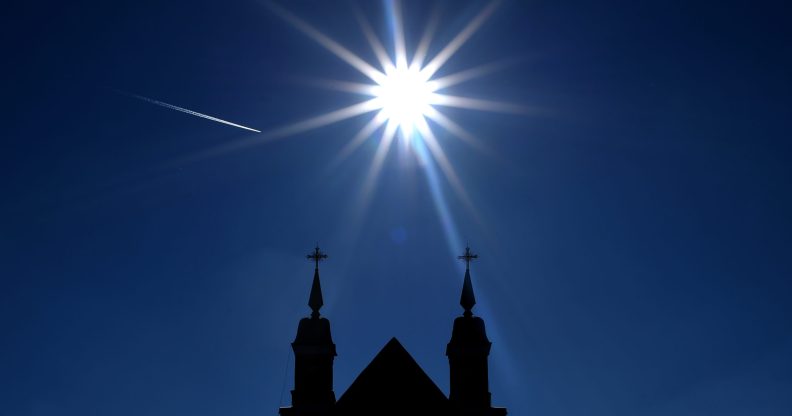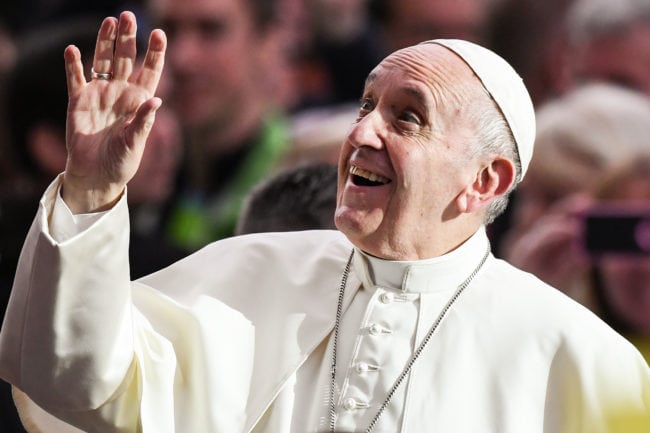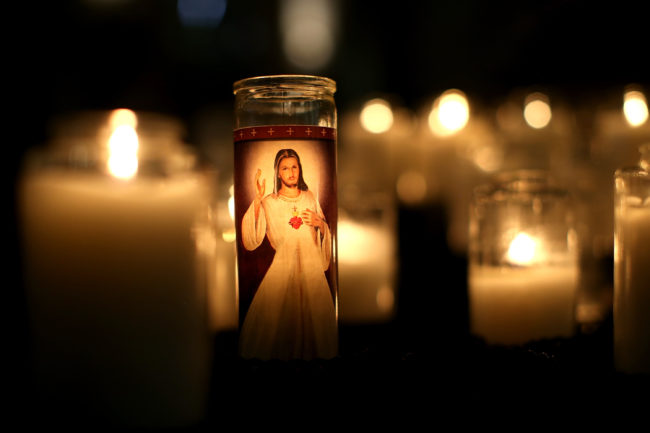Majority of Catholics want more positive approaches towards LGBT+ community

(SERGEI GAPON/AFP/Getty Images)
A majority of Catholics want more positive approaches towards the LGBT+ community within the Catholic Church, poll figures show.
Research carried out by YouGov for the Equal Future 2018 Campaign surveyed a total of 9,606 people in the world’s largest Catholic countries—Brazil, Columbia, France, Italy, Mexico, Philippines, Spain, and the US—to find out more about attitudes towards LGBT+ people in the community.
More than half (63 percent) of practicing Catholic agreed with the statement “the Catholic Church should reconsider its current teachings on LGBT issues to help support the mental health and well-being of children and young people”—a higher percentage than the general population (59 percent) and only a few percentage points below those who are baptised Catholics, but not necessarily practicing that faith any more (65 percent).

Current Pope and sovereign of the Vatican City State, Pope Francis (Jeff J Mitchell/Getty)
Only 15-16 percent of people in each category disagreed with the statement. Another statement, reading: “The Catholic Church’s current teaching on LGBT issues could cause a child/young person to feel that being LGBT is a misfortune or disappointment,” found 49 percent of practising Catholics in agreement as opposed to 26 percent who disagreed. Baptised Catholics and the general population was more likely to agree with the statement (56 percent and 53 percent respectively).
The proportion of practising Catholics agreeing with the statement that: “It could be damaging to a child/young person’s mental health and well-being if they felt that being LGBT was a misfortune or disappointment,” (49 percent) was instead more similar to that of baptised Catholics (51 percent) and the general population (50 percent).
Equal Future 2018 campaign director Tiernan Brady, who also led marriage equality campaigns in Ireland and Australia, welcomed the results as a call for change from within the Catholic Church’s membership.
“The support levels for changing the Catholic Church approach to LGBT people are reflected not just in the opinions of the general populations of all the countries polled, but also amongst baptised and practising Catholics. This is not a call for change from outside the Church—it is from its own people,” he said in a statement, adding that the results “clearly show that Catholic people across the globe believe that the current teaching and approach of the hierarchy towards LGBT people is damaging to children and young people.”

A candle with the image of Jesus Christ is displayed inside St. Patrick Church in San Francisco, California. (Justin Sullivan/Getty Images)
Equal Future 2018 is an international campaign raising awareness of the damage done to children when they are raised on outdated and incorrect beliefs associated with the LGBT+ community.
“The truth is that far too many children and young people grow up thinking that if they or someone they knew turned out to be LGBT it would be bad luck or a disappointment. Most of the damage that comes from learning such attitudes happens to children and young people long before anyone knows if they are LGBT or not,” Brady said.
The Equal Future 2018 campaign has set up a platform to coincide with Catholic Church’s Synod on Young People, which runs until October 28th in Rome. “This Synod was set up to consider the lives of children and young people across the globe and the issues and challenges that face them. It would be an incredible oversight and rebuke of the faithful and of young people if it does not address the damage done to children and young people by LGBT stigma,” Brady concluded.

